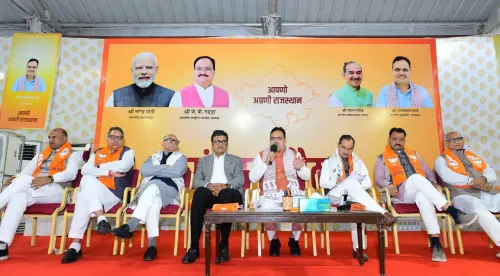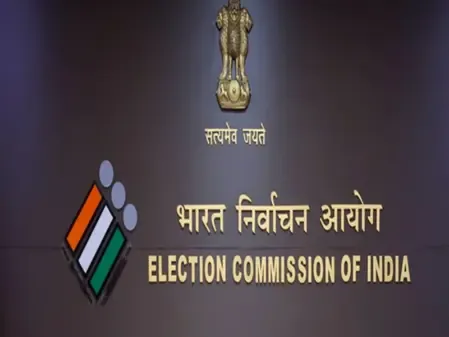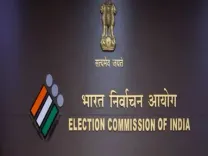Why is Assam's Opposition Leader Criticizing the Centre’s Decision to Extend CAA Cut-off Date?

Synopsis
Key Takeaways
- The Assam Jatiya Parishad opposes the extended CAA cut-off date.
- Lurinjyoti Gogoi emphasizes the threat to Assamese identity.
- The government claims minimal impact from the CAA in Assam.
- Protests against the CAA continue in the region.
- The CAA allows citizenship for specific persecuted minorities.
Guwahati, Sep 3 (NationPress) The Assam Jatiya Parishad (AJP) has expressed strong opposition to the Central government's recent decision to push back the cut-off date for citizenship under the Citizenship Amendment Act (CAA) from December 31, 2014, to December 31, 2024. This move has been labeled a “conspiracy to undermine the future of the Assamese people.”
AJP president Lurinjyoti Gogoi addressed the media on Wednesday, passionately denouncing this decision and recalling the massive protests that occurred in Assam back in 2019.
He emphasized that the people of Assam have firmly rejected the CAA, viewing it as a factor that worsens the state's ongoing struggle with illegal immigration, which has persisted for over four decades.
“For 43 years, Assam has been burdened by illegal immigrants. Now, the government is extending this timeline by another ten years, which means indigenous residents will suffer for a total of 53 years. This is a direct attack on our culture, identity, and existence,” Gogoi asserted.
He accused the Central government of conspiring against Assam and called for the state to be exempted from the CAA's enforcement.
“If the central government truly values Assam as an integral part of India, it should not impose this amendment here,” the AJP leader stated.
Gogoi also criticized Assam Chief Minister Himanta Biswa Sarma, reminding the public that the CM had previously promised not to extend the CAA deadline.
“The Chief Minister often alters his statements during election campaigns to mislead voters. His assurances hold no weight,” Gogoi added, alleging that the populace is being forced to endure a burden stemming from political betrayal.
However, Chief Minister Sarma sought to minimize the immediate repercussions of the law, noting that since the CAA's implementation two years ago, its practical effect in Assam has been negligible.
“The CAA is now law, but its consequences in Assam have been minimal thus far. In the two years since it was enacted, only 12 people have applied for citizenship, with just three being approved. The other nine applications are still under review,” Sarma stated.
He highlighted the significant contrast between these figures and earlier estimates that suggested 20 to 25 lakh individuals in the state could potentially benefit from the legislation, indicating that the feared mass influx has not materialized.
The Union Ministry of Home Affairs (MHA) has extended the cut-off date for citizenship under the CAA to December 31, 2024, allowing persecuted minority communities from Afghanistan, Bangladesh, and Pakistan—including Hindus, Sikhs, Buddhists, Jains, Parsis, and Christians—to remain in India even without valid travel documents.










